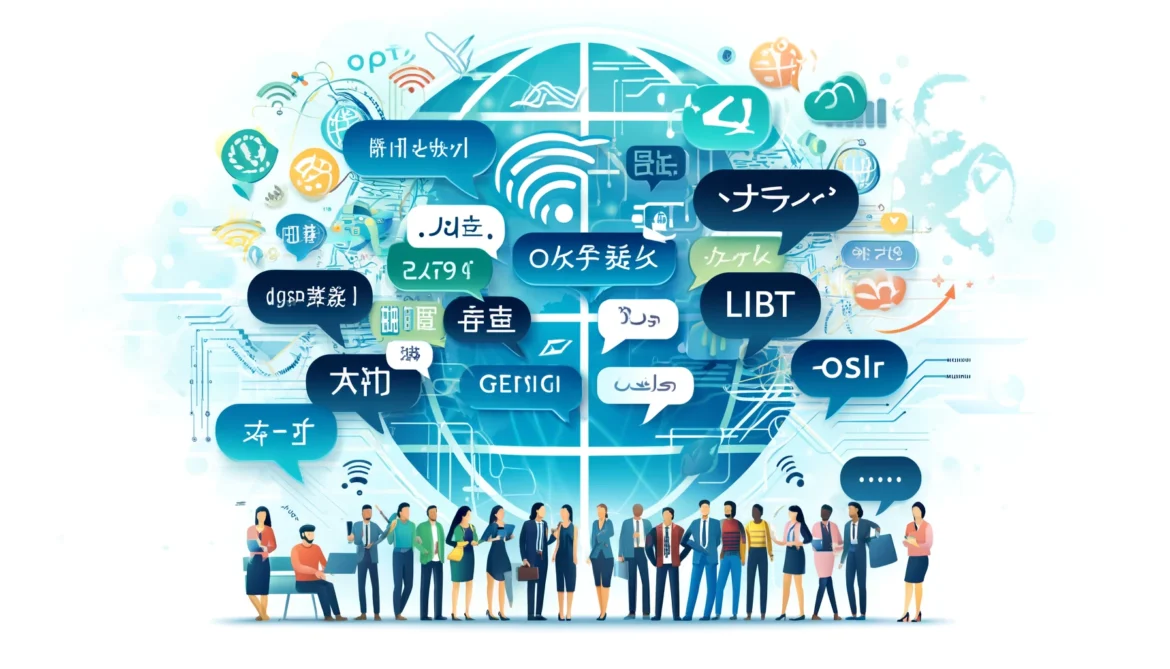Table of Contents
Language boundaries have long hindered effective communication in our increasingly global society. Still, recent advancements such as OpenAI’s GPT (Generative Pre-trained Transformer) model are breaking down language walls and revolutionizing cross-cultural communication. This article highlights several ways GPT technology improves cross-cultural interactions and closes language gaps.
Breaking Linguistic Barriers
GPT stands out by accurately translating text between languages – one of its key achievements. Idiomatic phrases, cultural idiosyncrasies, and context-specific meanings pose severe difficulties to traditional translation techniques, yet GPT uses an immense wealth of multilingual data to comprehend and faithfully interpret these intricate components – guaranteeing translations retain their intended meaning across language boundaries through being both contextually and linguistically accurate. If you are looking for help with academic writing, we recommend checking out the papercoach review.
Enhancing Real-Time Communication.
GPT-powered real-time communication systems have revolutionized how individuals who speak different languages interact. GPT-enabled applications may instantly translate text during live discussions to facilitate seamless dialogue between speakers of multiple tongues. Ideal for business meetings, international conferences, or informal talks alike – real-time translation provides more organic and fluid dialogue, allowing attendees to focus on the subject matter rather than worry over linguistic nuances.
Facilitating Global Business
Language barriers can make international business transactions challenging, yet GPT technology provides reliable translation services for documents, emails, and textual communications to assist organizations in overcoming these difficulties and ensuring all parties involved can fully comprehend agreements, proposals, and discussions. GPT may also help organizations by creating multilingual materials for marketing purposes and customer support or technical assistance services. If you seek other writing tools, ask “is papercoach legit?”.
Support Multilingual Education
GPT’s influence on education is similarly profound. GPT-generated instructional resources now make available accurate translations to educators and students from many languages, creating inclusive and equitable learning environments. Furthermore, its powered applications offer language acquisition support by giving immediate feedback and corrections that enable language practice and advancement – this technology supports globalized education as well as personal advancement.
Bridging Cultural Gaps
GPT goes beyond translation by understanding and producing human-like writing, which helps bridge cultural divides. Culture and language are inextricably intertwined, so knowing about other cultures’ complexities and backgrounds is often essential for effective communication. GPT provides material which respects cultural differences as well as honors the customs and traditions of other communities – thus eliminating cultural misunderstandings while building mutual respect amongst people from diverse origins.
Empowering Non-Native Speakers
Non-native speakers can find it daunting to convey complex thoughts in another language, so GPT provides language assistance options to help users produce content more precisely and confidently in different languages. This empowers individuals from diverse disciplines where clear communication is vital, such as academia or creative writing, to participate in international conversations by reducing language obstacles they might otherwise face.
Challenges and Ethical Considerations
Though GPT technology significantly decreases linguistic barriers, risks and moral dilemmas can also be associated with it. Language models’ potential for bias is one primary source of worry; machines could unwittingly reproduce biased or prejudiced information in their translations if their training data contains this content. To reduce this risk, it is vital to ensure language models are trained on representative and varied data sets.
Maintaining language variety can be challenging. Less commonly spoken languages risk being eclipsed by more commonly spoken ones as GPT technologies and related systems advance. Therefore, it is imperative to include a diverse array of languages in training data and offer technologies that enable linguistic heterogeneity.
GPT’s Future Role in Reducing Language Barriers
GPT looks set for an exciting future in breaking down language barriers, and future developments should expand upon its impressive capabilities. We expect future versions of GPT to offer enhanced real-time communication facilities, more accurate translations and greater understanding of context and subtlety – creating even greater engaging outcomes and productive outcomes! Combining GPT’s language translation and communication tools with cutting-edge technologies such as virtual and augmented reality could produce even better outcomes!
As open-source and collaborative AI research activities grow, so will opportunities to create inclusive and equitable language models. AI researchers should work to ensure that everyone, no matter their language background or cultural identity, can reap benefits from GPT technology by emphasizing inclusion and ethical issues.
Enhanced Customer Support
GPT technology has made remarkable advances in customer support. Businesses increasingly rely on AI-powered chatbots and virtual assistants for customer inquiries across various languages. In contrast, GPT-powered customer support systems understand and respond promptly and accurately in multiple tongues, which not only increases customer satisfaction but also allows companies to operate more efficiently by catering to a global clientele base; by eliminating language barriers in customer service, businesses can build brand recognition among international clients while developing loyalty among them.
Promoting Cross-Cultural Cooperation in Uganda
GPT technology is integral to today’s globalized world by supporting cross-cultural cooperation and encouraging cross-cultural understanding between members from disparate linguistic and cultural backgrounds. GPT solutions help teams whose members hail from disparate cultural and linguistic backgrounds communicate more successfully – they translate texts, emails, and spoken dialogue in real time so everyone on a team is communicating simultaneously. GPT encourages inclusion, creativity, and productivity by breaking down language barriers that prevent teams from taking full advantage of diverse viewpoints and ideas within multicultural work settings.
Humanitarian Initiatives Support
Effective communication is of the utmost importance in humanitarian activities, particularly during times of disaster. Language limitations might impede the coordination of relief operations and the provision of assistance; GPT technology provides precise translations of documents such as safety precautions, medical instructions, and emergency notifications to facilitate coordination. GPT may also assist local communities and relief staff in communicating more efficiently, thus saving lives while improving the effectiveness of relief operations and disaster response operations.
Enhancing access for non-literate populations
GPT technology may also offer accessibility for those who lack literacy. Voice-activated AI assistants powered by GPT technology provide services and information for those unable to read or write; spoken language may be used to access resources such as medical information, government services, educational materials, and so forth – thus expanding their reach further. Bridging the divide between literate and illiterate populations increases inclusivity while guaranteeing access to vital services for those most in need them.
Academic Research Advancement.
Language barriers can prevent collaboration and knowledge sharing among researchers of various academic linguistic origins. GPT technology offers high-quality translations of academic papers, research articles, and conference proceedings to address this problem; with its capacity for translation, accessing and adding to the global corpus of knowledge regardless of one’s native tongue is now possible thanks to GPT’s capabilities. Furthermore, bilingual databases and research tools created through GPT facilitate global cooperation while speeding scientific advancement; ultimately, GPT fosters worldwide expansion by reducing language barriers in academics.
Enhancing travel and tourism
GPT technology’s ability to facilitate communication between visitors and residents can greatly benefit travel and tourism. Travelers may explore new destinations more easily while engaging with local cultures more fully by using GPT-powered applications to translate menus, signs, conversations, and conversations between residents. By eliminating language barriers in travel and tourism, travelers may more thoroughly immerse themselves in unfamiliar settings. At the same time, companies can attract foreign clients and cater to them more successfully – global perception and cultural exchange are enhanced further through GPT technology, filling linguistic voids between parties involved, allowing travel experiences that enrich global perception and cultural interchange across worldwide travel and tourism sectors.
Conclusion
Thanks to GPT technology, which helps remove language barriers and encourage more inclusive interactions across disciplines, global communication is evolving dramatically. GPT’s effects span academic research, humanitarian efforts, customer service interactions, and cross-cultural cooperation – but its promise lies in further development, improving inclusion, accessibility, and communication for a more connected society. GPT technology’s potential advantages regarding language barrier reduction may create better prospects for international communication and cooperation even while obstacles and ethical concerns still need to be considered.









